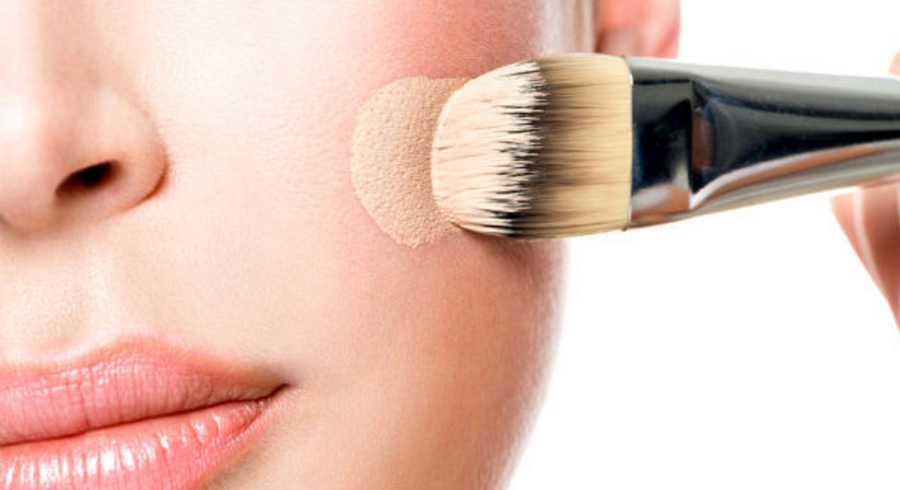As a beauty junkie, there’s a high chance that you have bought too many products for you to remember. New collection? Definitely on the waiting list. Pretty packaging? Goes straight into your shopping cart. Already have another product with similar shades? Who cares?
It can be very easy to lose track of when you bought and first started using makeup products, which leads to the problem of unknowingly using expired stuff. You might think it’s not much of an issue, since makeup products aren’t ingested (not in huge quantities anyway), and they’re made of weird chemicals that bacteria wouldn’t like as much, right? Well, just look at this picture.

Source: JustJill Cosmetics
This bevy of bacterial colonies grown from expired makeup have tested positive for some very serious diseases, like Meningitis, the bacteria that infects the brain, and Enterobacter, which infects the intestines.
Using expired makeup is actually a problem just as bad as consuming expired food, but it’s one that we do not pay much heed to. Expired makeup can be nurturing a whole lot of dangerous bacteria, and using them can cause breakouts, redness, swelling, and, in the worst case scenario, infections.
How do I know if a product has expired?
Different products naturally have different shelf lives, depending on how often you use them and what ingredients they contain. Most products should have an open cream jar icon, known as the PAO (or “Period After Opening”) symbol, which includes the number of months a product is safe to use after it has been unsealed.
https://www.instagram.com/p/B7y_w7nh8bA/?utm_source=ig_web_copy_link
Generally, most products should be thrown away and replaced after 1+ year upon opening, even if the expiry date on the product itself indicates otherwise. In most cases, the products’ consistency will change when they expire, so they won’t work well anyway. Below is a quick guide to the average lifespan of different products:
https://www.instagram.com/p/BswjfxbFlRV/?utm_source=ig_web_copy_link
While expiry dates are a good indicator, it’s still best to check for any signs of your makeup products going bad.
Mascara

The one makeup product that tends to go bad really quickly is mascara. The dark and moist environment of the mascara tube is an ideal breeding ground for bacteria, which can potentially cause many types of infections.
If you sniff your mascara and sniff something that smells foul, it’s a sign that you should toss it away. If you want to be safe, remember to replace your mascara every 3 months.
DV Tip: Stop pumping your mascara wand into the tube if you want your mascara to last longer! The pumping action actually introduces air into the product, which can accelerate its degradation.
Liquid foundation

Changes in colour, texture and smell of formula are sure signs that it’s way past its day. Most water-based foundations can last up to a year after opening, while oil-based foundations can last up to 18 months.
Foundations contain ingredients that can start to separate when they’ve expired. The oil-based ingredients will always rise to the top, so if you continue to use expired foundation, you may be applying a higher concentration of potentially pore-clogging oil to your skin, which may cause breakouts (termed acne cosmetica).
Concealers

Look for changes in colour and texture whenever you use your concealer. Most concealers will last a year or more, depending on their type. Stick concealers should last up to one and a half to two years, while liquid concealers have a shorter lifespan of only one year.
Lipsticks, liners, and gloss

It’s time to throw away your favourite lip products when you notice a change in their texture. Lipstick is full of natural, hydrating ingredients, which, when exposed to air, can dry out and make it difficult to use.
Whether you’re using a lipstick bullet or a liquid lipstick or gloss with a wand applicator, you’re putting that directly on to your lips. The human mouth is actually thriving with bacteria, there being as much as 100 million bacteria in each milliliter of saliva!
Your lipstick applicator is touching all that bacteria, and then going back into the tube, introducing them to the rest of the product. We hope that image will make it easier for you to part with your lippies after a year.
Blush and Powder

Powder blushes and setting powders will usually last around two years, as bacteria do not thrive in a dry environment. In fact, experts have also said that it is perfectly fine to keep a blush for three to four years as long as it looks okay and still delivers results.
Eyeshadow

While powder shadows can last as long as powder blushes (about two years), they should be replaced more often since they’re used around your eyes. Your eyes are considered sensitive areas, and bacterial infections there would be more severe than, say, on your skin. Watch out for discolouration, waxy build up or a change in smell.
Cream eyeshadows would, of course, have a shorter shelf life than their powdered counterparts. They are good for about one year after opening.
Liquid eyeliner

Experts warn that eye redness, irritation, and infection are all side effects of expired eye products, and eyeliners are the biggest culprits when it comes spreading infection. If your liner begins to lose its colour, dry out, or become ineffective, don’t hesitate to throw it out.
Brow pencils and pencil liners

Pencils last longer than most eye products since they’re constantly being sharpened, which gets rid of any bacterial build-up on the tip. As with most cosmetic products, check the colour and the smell to see if they have turned bad.
How can I make sure that I don’t use expired products?
1. Write the date that you first opened the products, on the products

PAO (Period After Opening) symbol
We all know it’s tough to remember tasks to be done months later, so why not make it a habit to label the date that you first opened your products? For example, you could paste a sticker label on the bottom of your makeup bottles to remind yourself of relevant dates.
If there is an expiry date on the box (which you will be throwing away) or if there is a PAO displayed clearly on the packaging, take whichever is earlier and write that date down.
If you don’t see any, or aren’t able to get that information, at least write down the date on which you first opened the product – it’s better than nothing, and still makes it easier for you to keep track of when you should be throwing things out.
Don’t have sticker labels? Just tear a small piece of masking tape and write the date in pen or marker! It really doesn’t take much time or effort, and it could save you a lot of trouble in the long run.
2. Record expiry dates in one place

Not keen on labelling your lipsticks with expiry dates because it ruins the beautiful packaging? Alternatively, you can record all the important dates down in one place, such as a notebook that you always carry around or create to-do lists in.
There are also dozen of phone apps out there that could help you keep track of your expiry dates. You can even use your phone’s in-built Reminders app, or the Google Keep app, to jot down these things. Where there’s a will, there’s a way!
3. Replenish when needed instead of stockpiling

Found a lipstick that you love, so you buy a ton of them in advance? If this is a habit, it’s time to break it. Instead of stockpiling on your favourite product, try to replenish your supply only after you have finished them.
Not only is this healthy for your wallet and your vanity space, this decluttering also helps you to remember better which products are expiring!
4. Use one product at a time

We all know the urge to buy makeup products on an impulse is real, but it’s definitely not great when they expire within such a short period of time. If you really must buy, try to limit to using just one (or a few) product(s) of each type at a time. Your products can last much longer if unopened, so some self-control definitely helps to save on potential wastage!


